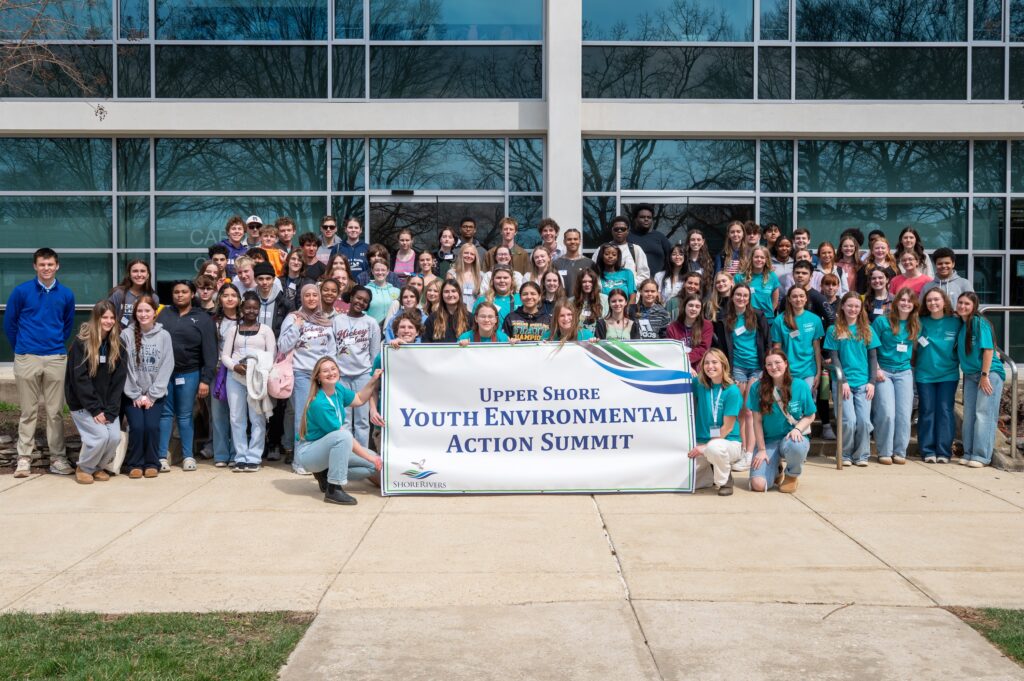Washington College Gets $1 million grant from State Commerce Department to Endow River and Field Campus Directorship

CHESTERTOWN, MD—Washington College has won a $1 million grant from the Department of Commerce’s Maryland E-Nnovation Initiative Fund (MEIF) to establish an endowed directorship of its River and Field Campus, an award matched by $1 million from Harry Sears, the landowner who has provided the 5,200-acre property for the College’s oversight.
It’s the fourth time in four years that Washington College has won an MEIF grant, and it will mark a turning point for the River and Field Campus (RAFC), which will become a research and experimental hub for a holistic rural land management model that supports the co-existence of sustainable land conservation and profitable agriculture. Already a research center for faculty and students in disciplines ranging from biology to anthropology, RAFC is now poised to launch ground-breaking work focused in innovative agriculture, natural resource management and restoration, and agro-ecotourism and recreation.
“Supporting innovation in Maryland is an essential part of keeping our state competitive, spurring business growth, and paving the way for the jobs of the future,” Maryland Commerce Secretary Kelly M. Schulz said on Friday announcing the awards. “Funding from the Maryland E-Nnovation Initiative will help four of our leading colleges and universities continue the important research that helps move our state forward.”
“Once again, Washington College is leading the way in environmental and sustainability studies, this time in the completely unique and unmatched living laboratory of the River and Field Campus,” says College President Kurt Landgraf. “We could not have accomplished these remarkable goals without the immense and consistent support of Harry Sears, who foresaw decades ago how agriculture and conservation must work hand-in-hand to the benefit of all, and then provided us the unparalleled property to explore answers to the questions that arise from that challenge.”
Michael Hardesty, currently Director of Programs and Staff at the College’s Center for Environment & Society (CES), will be named the new Director of the River and Field Campus. With over 15 years of experience in agriculture development and policy as well as environmental restoration and policy, Hardesty has overseen RAFC programming and development since 2012.
“Our River and Field Campus is a national gem; there is nothing like it in higher education,” says John Seidel, Director of CES, which oversees the programming and research at RAFC. “Its varied habitats provide myriad opportunities for teaching and research, while innovations in habitat restoration and agriculture provide models for others. This grant and generous matching gift will help us maximize the benefits of RAFC for our students and for the region.”
The River and Field Campus, located about a 10-minute drive from the College’s main campus, includes 2.5 miles of Chester River waterfront, 1,700 acres of forest containing ecologically unique Delmarva bays, and a 90-acre waterfowl sanctuary. Nearly all of it is protected from development—a result of Sears’ decision in 2001 to partner with The Conservation Fund to create the largest conservation easement in the state of Maryland. A member of the College’s Board of Visitors and Governors, Sears for decades has invited scientists and researchers from multiple institutions to conduct innovative environmental research and projects there. In 2017, he turned oversight of the property and its research over to the College.
RAFC is home to a working farm as well as programs and research overseen by the CES including Foreman’s Branch Bird Observatory, the Natural Lands Project, the Grasslands Restoration project, and part of the Chester River Watershed Observatory. It is also the location of the Eastern Shore Food Lab’s new wild food outpost.
Dozens of College students already study and work at RAFC with faculty, where they conduct field research on diverse projects including studying the parental care of field sparrows (a species that comes to the property specifically for the restored grassland habitat there); analyzing surface runoff to better inform land managers of the best locations and methods to trap pollutants before they reach the Bay’s tributaries; comparing soil profiles in riparian and upland habitats; and surveying seed dispersal and tree diversity.
Ultimately, RAFC will also provide a venue for expanding WC athletics including the College’s varsity trap and skeet team, equestrian team, and development of cross-country and track and field opportunities. The entire property will also become more accessible for students, faculty, and staff who want to spend time immersed in the natural world. It is the perfect venue for both recreation and the applied, hands-on learning that has become a hallmark of Washington College’s environmental programs.
This is the fourth consecutive year the College has successfully pursued an MEIF grant with matching support from donors—a prerequisite for the award. In 2018, the state awarded WC $1 million, matched by $1 million from The Hodson Trust, to establish an endowed directorship for the College’s GIS Program. In 2017, the state awarded $944,000, matched by $1 million from private donors, to create an endowed chair for the College’s new Eastern Shore Food Lab. And, in 2016, the state granted $1 million to match private funds to create an endowed position in CES aimed at creating entrepreneurial opportunities for students in the sciences.
# ## #
~ Washington College
Founded in 1782, Washington College is the tenth oldest college in the nation and the first chartered under the new Republic. It enrolls approximately 1,450 undergraduates from more than 39 states and territories and 25 nations. With an emphasis on hands-on, experiential learning in the arts and sciences, and more than 40 multidisciplinary areas of study, the College is home to nationally recognized academic centers in the environment, history, and writing. Learn more at washcoll.edu.





